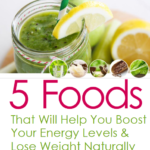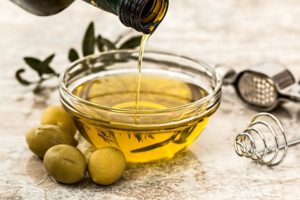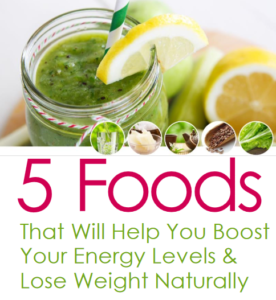You can regenerate you brain
We were always told once a brain cell dies, it’s gone forever. However, scientists are now proving that brain cells can be regenerated. Just like your muscles the brain needs regular use.
While many diseases and conditions have genetic predispositions to them. The truth is, you do have the power to control these genes by living healthily. All your brain wants is a little attention.
The same basic rules apply for both your brain and body when it comes to health. A well-balanced healthy diet, with a rainbow of colourful food, lots of good oil, exercise for oxygenation, and time out.
Free radicals break down the neurons in your brain causing damage. Colourful fruits and vegetables are packed with antioxidants – the dark purples of blueberries, the deep reds of pomegranates, the rich green of kale and collards, the bright orange of sweet potatoes.
blueberries, the deep reds of pomegranates, the rich green of kale and collards, the bright orange of sweet potatoes.
A recent study in the Journal of the American Medical Association found that people who ate more dietary antioxidants had 70% less Alzheimer’s and dementia.
Food is a powerful ways to control or neutralise the major causes of all disease in your body – aim to eat 8 – 10 servings (1/2 cup = 1 serving) of fruit and vegetables everyday.
Oil and more oil, everyone of your brain cells is insulated by a layer of fat, and your brain is made up of 60 percent fat cells. So it needs oil for nourishment. Among the best nutrients are omega 3 fatty acids – the kind of fats found in salmon, tuna, mackerel, nuts, sesame seeds, pumpkin seeds and green leafy vegetables.
In fact Omega 3’s have been shown to boost intelligence. Walnuts are considered a super brain food in Ayurvedic medicine and if you look at a walnut shape it looks a lot like the cerebral cortex.
Exercise is one of THE most important anti-aging medicines known. It’s a natural antioxidant, anti-inflammatory and stress buster. It will also help you sleep better, lower your cholesterol, lower your blood sugar and insulin levels. Aim to exercise 4 times a week –whether it’s walking, running, swimming or dancing, your brain will thank you.
Some supplements to consider if you’re under a lot of stress – take a good all round combination that contains vitamins, minerals and antioxidants. B-Vitamins are essential for normal brain function.
Super anti-ageing herbs:
- Rosemary, sage, rose and mint – research has shown that inhaling these essential oils when learning a new task or studying enhances your recall. Put them in an oil burner when studying or rub into your temples.
- Gingko bilobo – very commonly used supplement to enhance cognition and memory as it helps to increase blood flow to the brain. A word of caution for those people on blood thinning medication, consult a qualified professional.
- Gotu kola – traditionally used and renowned for it’s intellectual-promoting, nervous system soothing and general mind enhancing properties. This is one of my favourite herbs
 because it has so many benefits, to name a few – anti-ageing & wonderful skin healing benefits.
because it has so many benefits, to name a few – anti-ageing & wonderful skin healing benefits. - Rhodiola – can greatly improve concentration and memory. In Siberia where they drink Rhodiola tea regularly, many people live well past 100. It also has the ability to reduce stress hormones.
As renowned women’s health expert Dr Christine Northrup says ‘Be a life long learner’, she believes this could be one of the most important factors in maintaining and enhancing your brain function, be actively engaged in some pleasurable activity that involves growth, development and learning. Do crossword puzzles or suduko.
So why wait? Start protecting your brain now because mental decline is not inevitable, you can boost your memory and mental alertness at any age. Research shows clearly that healthy, well-nourished and well-educated people show no signs of declining mental function with age. Feed your brain, both with the right nutrients and the right information.
Get your copy of the FREE e-book:
5 Foods that will help boost Your Energy Levels and Lose Weight Naturally.
When you sign up you’ll also receive ‘The Good Health Guide’ newsletter with inspiration, practical, easy to follow tips and articles on healthy eating, recipes, exercise and natural medicines to help you live a healthier life.
These newsletter are all delivered straight to your inbox.
This is what readers of the ‘The Good Health Guide’ newsletter are saying about it:
-
Just to say that I do really like your newsletters and many thanks! I always read them all the way through and there’s not many newsletters I can say that about. Sue Saker – London UK www.thecouplescoach.co.uk,
-
Thanks for this – I love receiving your emails ! So interesting.
Emma – London UK The Decor Cafe. -
Fabulous, Excellent Sue!!
Julie Cleverdon – South Africa. Director of The MTN Science Centre mtnsciencentre.org.za -
I love your updates Sue -find them really informative and useful. Thank you for sharing important information so freely, what a gift to the health of humanity.
Pippa Dowding, Leadership Coach and Facilitator – Cape Town, South Africa -
This is a great newsletter Sue! (caroline@carolinecain.com)
-
Great artical, keep them coming. Doug – Frankfurt, Germany
 Sign up by clicking:
Sign up by clicking:  For so many years, health experts have preached that a low fat diet was the way for you to lose weight and be healthier. They proclaimed fats as your enemy, linking them to heart disease and other illnesses.
For so many years, health experts have preached that a low fat diet was the way for you to lose weight and be healthier. They proclaimed fats as your enemy, linking them to heart disease and other illnesses. skin and hair soft and subtle, lubricate your joints.
skin and hair soft and subtle, lubricate your joints.
